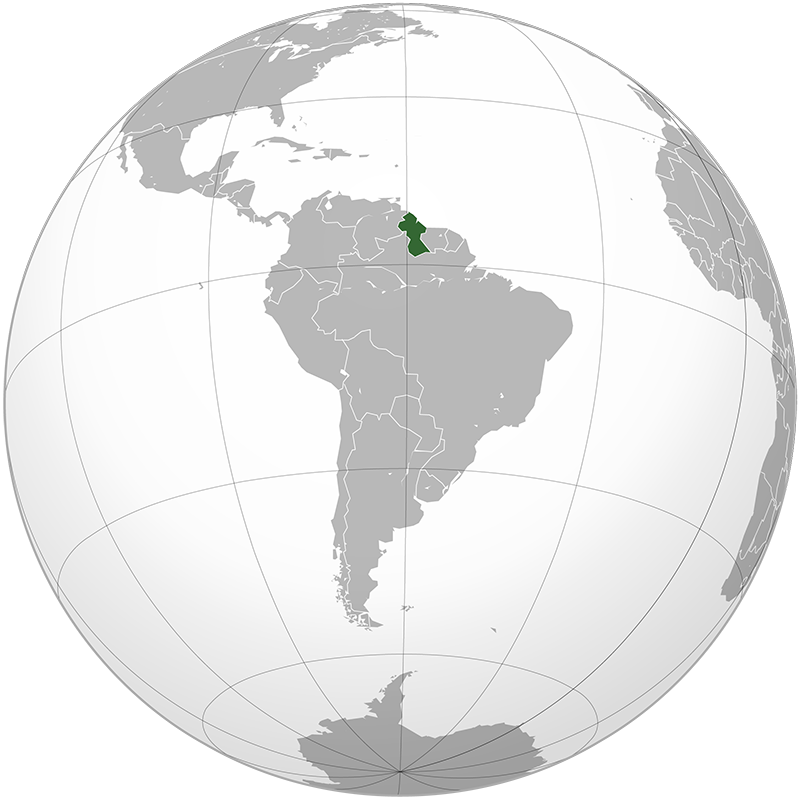
- Population:
- 831,000
- Religion:
- Christianity
Guyana was originally inhabited by indigenous peoples before being colonized by the Dutch and later the British. It gained independence in 1966 and has recently experienced economic growth due to its emerging oil industry. The country retains a diverse cultural heritage with African, Indian, and indigenous influences.
Guyana, officially the Co-operative Republic of Guyana, is a country on the northern mainland of South America. It is bordered by the Atlantic Ocean to the north, Brazil to the south and southwest, Venezuela to the west, and Suriname to the east. Covering an area of approximately 214,970 square kilometers, Guyana has a population of about 790,000 people as of 2023. The capital and largest city is Georgetown. The official language is English, making it the only South American nation with English as the primary language. Guyana operates as a unitary parliamentary republic. The economy has traditionally been based on agriculture (sugar and rice) and mining (gold and bauxite), but recent offshore oil discoveries are transforming it into one of the fastest-growing economies globally. Guyana is known for its rich biodiversity, dense rainforests, and natural landmarks like Kaieteur Falls. It is a member of the United Nations, the Commonwealth of Nations, and the Caribbean Community (CARICOM).





